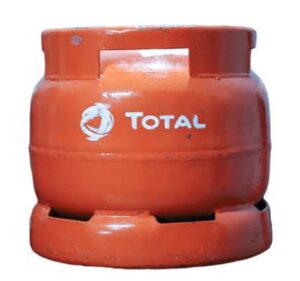
Downtown Nairobi CBD. Photo/courtesy.
For years noise pollution has been a major concern for Nairobi residents who often complain about discomfort caused by loud music in nightclubs among other sources of noise. Studies have proven that noise pollution is a key determinant of property prices and its impact is far-reaching.
Owners of nightclubs and joints have been at loggerhead with authorities for their continual disregard for noise pollution laws. In October 2024, Environment Cabinet Secretary (CS) Aden Duale ordered a closure of an entertainment joint after members of the public raised concerns over the loud music in the joint. However, this was not the first time authorities moved to close nightclubs over noise pollution concerns. In 2022, Nairobi County governor Johnson Sakaja ordered the closure of 43 clubs in Kilimani after residents complained about noise pollution by the joints, even though the decision was later reversed.
While properties in noisy neighborhoods and quieter ones may have similar features, studies have revealed that noise is one of the key factors people consider before buying property. Traditionally, home buyers would consider factors like location, budget, size, land rates, maintenance, accessibility, resale value among others, noise often comes last in the consideration factors.
Source of Noise in Nairobi
According to a 2023 report by SpringerOpen, noise pollution is a “pivotal predictor of housing prices” across the world. Notably, the report found that highly polluted (noise) areas lead to cheaper houses, with sources of noise being road traffic, crowds, aviation, manufacturing establishments and nightclubs.
Few studies have been published on the impact of noise pollution on property prices yet many home buyers consider it when making a buying decision. Tabitha Wanjiku, a real estate consultant, says the value of property is determined by noise levels and tranquility in the neighborhood. She notes that properties located in quieter areas are likely to appreciate in value because they provide a conducive for living and wellbeing.
“Properties in noisy locations are often listed at lower prices compared to similar property in quieter areas because in quieter neighborhoods there is no traffic and alot of people. The value of properties appreciates in value compared to places where there is noise,” Wanjiku says.
ALSO READ: Why Collective Real Estate Investment Is the Next Big Thing
Wanjiku says families prefer quieter places because it ensures privacy in addition to amenities that are rarely available in crowded and often noisier neighborhoods. Properties in noise polluted areas drop by six per cent in comparison to tranquil places. Tranquility is a major factor that every family wants, even more a young family would prefer quieter place to bring up children and to avoid the constant disturbances cause by noise.
The sources of noise in urban settings like Nairobi include but are not limited to noise from the airport, power plants, train tracks, landfills, nearby highway, an athletic complex, cell phone tower and nightclubs. All these sources pose a threat to the wellbeing of city dwellers as noise has been scientifically proven as a cause of adverse health challenges. Such health problems are likely to make home buyers to shy away from purchasing houses in noisier neighbourhoods.
Impact of Noise Pollution on Human Health
According to the World Health Organization (WHO), noise pollution is linked to several health problems including cardiovascular disease, mental illness, stroke, dementia and cognitive impairment. It also causes sleep disturbances and annoyance. Some of these effects are irreversible.
A ResearchGate study found that long term exposure to noise may lead to Noise Induced Hearing Loss (NIHL), especially among children because it may not be identified until it is too late when a child begins to show signs of delayed development and poor grades for the ones in schools.
While some tenants may prefer noisier places because of a popular attraction or vibrant nightlife, this however might not always be true for those seeking permanent residence therefore property sellers might find it hard to get clients. Wanjiku also says that noisier areas are often associated with insecurity yet many prospective home buyers consider safety as a key decision metric. She says its crucial to understand how noise impact property prices as a developer and for a home buyer, knowing the impact of noise on health and general discomfort that comes with it is vital.
“Property owners in a noisy area may struggle to attract interested buyers affecting their ability to secure a favourable sale. Understanding the implications of noise pollution is crucial. It’s important for buyers to carefully weigh the benefits against potential drawbacks such as noise,” she notes.
How To Reduce Noise Pollution in Urban Centers
Despites this, Wanjiku says that several measures can be put in place to curb noise pollution including enforcing noise pollution laws, installing soundproof windows and sound insulation in construction stages. She adds that noise pollution could be linked to poor urban planning.
However, the idea of enforcing noise pollution laws is an emotive issue especially among businesspeople in entertainment industry. Many of them argue that their businesses pay a lot of taxes and restricting their activities would lead to losses which results in low tax revenue.
According to the National Environment Management Authority (NEMA), the permissible noise level is 45 decibels (dB) indoors during the day and 35 dB at night while outdoor 50 dB is allowed during the day and 35 dB at night. However, these regulations have time and again been breached by several city businesses and even matatu operators which affects the value of properties.
Noise pollution is a widespread problem in urban areas around the globe, arising mainly from sources such as traffic from railways, motor vehicles, and aircraft. Although often neglected in discussions about real estate, research indicates that noise pollution significantly affects property values.
Other Studies on Impact of Noise Pollution and Property Prices
In Europe, for example, noise levels are crucial indicators of real estate worth, a trend that is similarly observed in various cities and continents. Studies have consistently highlighted a strong relationship between noise levels and property prices. A research study by Collins & Evans (2008) found that homes situated near noise pollution sources tend to sell at much lower prices. For instance, houses in regions where noise interferes with daily life characterized by daytime and nighttime sound levels ranging from 70 to 75 decibels typically sell for about 20.8% less than comparable homes in quieter environments, where noise levels are below 65 decibels.
In Nigeria, a related study demonstrated that noise pollution adversely affects rental property values. Researchers employed a survey methodology to review data gathered from 61 questionnaires, concluding that properties in noisier areas commanded lower rental rates. These results were bolstered by descriptive statistics such as frequency, percentage, and mean, which highlighted the negative impact of noise pollution on real estate value.
When comparing Nigeria and Kenya, cities like Abuja and Nairobi exhibit several similarities, including advanced road networks, notable architecture, and modern infrastructure. These commonalities imply that the findings regarding noise pollution’s impact in Abuja could also hold true for Nairobi.
Real estate professionals advocate for the implementation of noise reduction strategies to enhance urban living conditions and raise property values in noise-affected areas. On a global scale, research has pinpointed ten neighborhood factors that can lower property values, with noise from airports, rail tracks, highways, sports complexes, power plants, and landfills being among the most significant. Additional factors also contribute to this trend.
Property developers therefore need to consider noise as one of the factors that can reduce property value or push away the potential buyers. For home buyers, its crucial to conduct due diligence before buying a property owing to long-term health challenges caused by noisy neighbourhoods.




